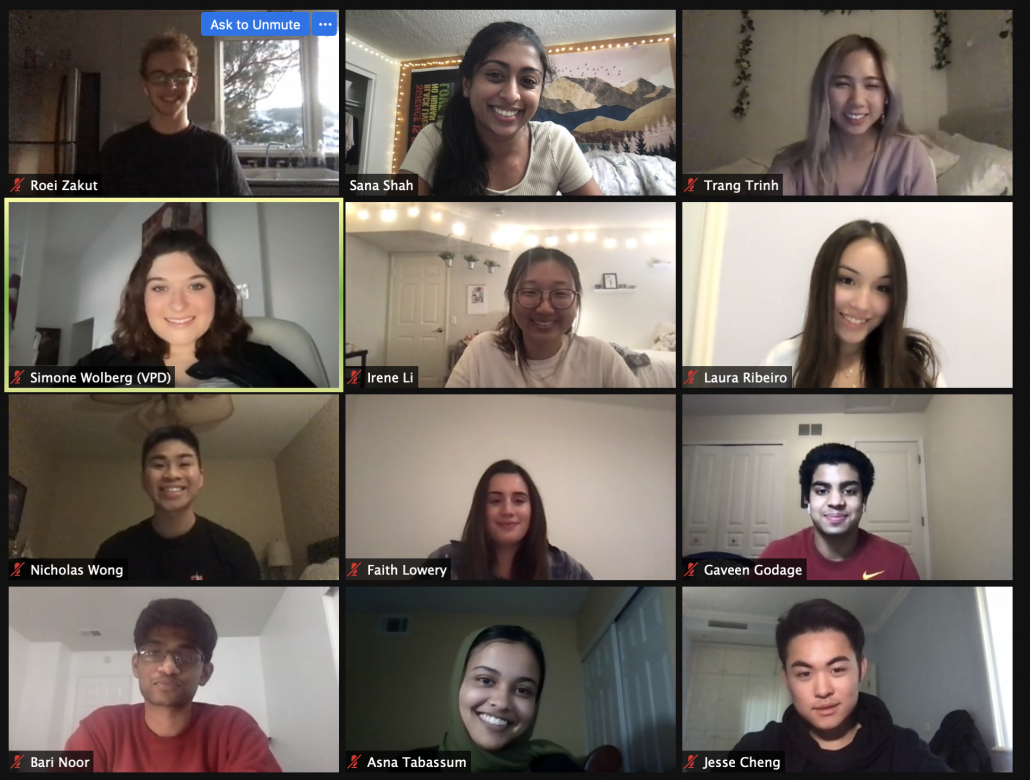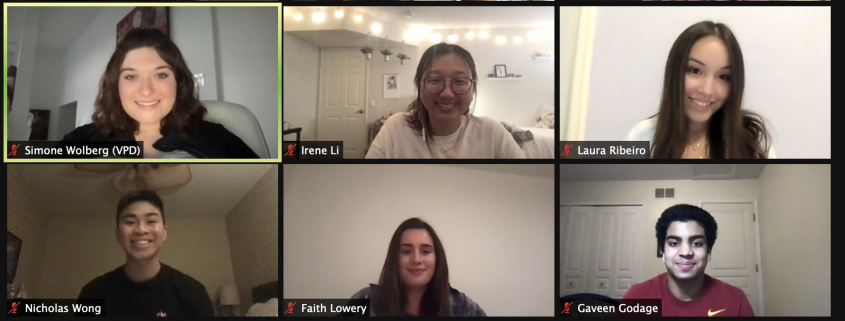Blueprints for Pangaea reallocates medical supplies to those in need

To address health inequities both locally in Los Angeles, as well as globally, Sana Shah founded the USC chapter of Blueprints for Pangaea in November with a mission to reallocate unused medical supplies from local hospitals to communities in need.
Blueprints for Pangaea is a national organization founded in 2013 and headquartered at the University of Michigan. The organization has expanded to eight universities across the United States, with the new USC chapter being the first on the West Coast.
Shah, a transfer student from the University of Michigan and a member of their Blueprints for Pangaea chapter, knew that she wanted to bring the organization with her to USC.
“I’m really passionate about two big things: health equity and sustainability,” said Shah, a junior majoring in health promotion and disease prevention. “I think Blueprints for Pangaea addresses healthcare from an environmental perspective. Not only are we working to bring supplies and resources to people who need it, but we’re also getting waste out of landfills.”
While Blueprints for Pangaea has always been committed to health equity, their work is even more critical during the coronavirus pandemic, Shah said.
“The national chapter has donated personal protective equipment (PPE) to various clinics,” Shah said. “A lot of people are severely lacking things that we might get whether it’s gloves or face masks.”
While the USC chapter started with Shah, she is now joined by 14 other passionate student leaders. Together, they are building partnerships with hospitals and nonprofits across L.A. and the greater Southern California region.
One of their non-profit partners, Rolling with Me, is based in San Diego and delivers medical supplies and equipment to communities in Tijuana and Rosarito, Mexico. Another partner organization, Not Just Tourists, works with individual travelers to deliver medical supplies to clinics around the world while they go on vacation.
Nick Wong will serve as director of human resources, where he will help continue to build partnerships with organizations across L.A. and facilitate relationships between new members of the organization.
“My goal is to make sure that the foundation is strong so that members feel like this is an organization that they can be a part of in the long run and have a lasting effect on the community,” Wong said.
The Blueprints for Pangaea headquarters continues to support and guide the USC chapter. Mariam Tobia, the University of Michigan expansion manager, has worked closely with Shah in setting up the new chapter and recruiting members to join.
“The potential that USC has is truly phenomenal,” Tobia said, “When I was sitting down [for interviews], I was just mind blown by how much experience and how much passion the interviewees were bringing. That got me really excited to see what more we could do when we have a finalized group of leadership.”
Although the USC chapter will be the first on the West Coast, they will hopefully not be the last. Blueprints for Pangaea hopes to continue expanding to other universities on the West Coast; however, there are many challenges that come with starting chapters in this area, mainly because it is more expensive, Shah said.
“One thing I’m really excited about … is being able to help other West Coast chapters grow,” Shah said. “On the West Coast, it’s going to be a lot harder, realistically, just because of the price of storing supplies. I would love to help support other LA-based chapters.”
After Blueprints for Pangaea receives supplies from hospitals, they need a place to store them until they are able to distribute them to their partner nonprofits. The organization is hoping to secure funding for storage units in L.A., Shah said.
“I think the first step I want to take with this USC Chapter is to ensure that we have enough funding to keep it going,” Tobia said. “It can be a tough market if we have to buy a storage unit or anything like that. It can get pretty pricey. Now, we’re looking at ways to fundraise. I think that’s really going to help us in the future.”
In addition to financial support, Blueprints for Pangaea also relies on the support of dedicated student volunteers. While the new chapter hasn’t started receiving shipments of medical supplies yet, they hope that the USC community will be able to come together to help them once they do.
“When we are back in-person, there are going to be a lot of opportunities to volunteer with us,” Shah said. “Executing a shipment is not easy. We always need a lot of people on hand to help us inventory the supplies and measure our impact.”

